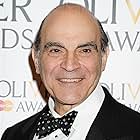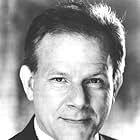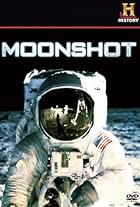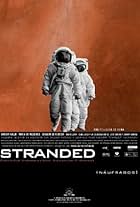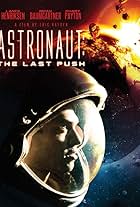This two-part science fiction docu-drama examines the possibilities of a dangerous, manned space mission to explore the inner and outer planets of the Solar system.This two-part science fiction docu-drama examines the possibilities of a dangerous, manned space mission to explore the inner and outer planets of the Solar system.This two-part science fiction docu-drama examines the possibilities of a dangerous, manned space mission to explore the inner and outer planets of the Solar system.
- Awards
- 1 win
Photos
David Suchet
- Narrator
- (voice)
Rodolfo Jiménez
- Extra
- (uncredited)
Maurice Nathan Weert
- Ground controle EVA Sysytems
- (uncredited)
- Director
- Writer
- All cast & crew
- Production, box office & more at IMDbPro
Storyline
Did you know
- TriviaFrom an astronomer's perspective, the data, images and footage provided by the series is as accurate as it can be, considering that by 2004 most of the data was speculated.
- GoofsThroughout the story, the Pegasus crew and Mission Control hold conversations in real time. Transmissions between a spacecraft and Earth would, in reality, take a great deal more time due to the lag caused by the vast distances.
- ConnectionsRemade as Defying Gravity (2009)
Featured review
I came across this movie on DVD purely by chance through a Blockbuster rental. Voyage to the Planets is an excellent BBC 2hour documentary/drama about a future "grand tour" of the solar system. Taking pains to adhere to current knowledge about the planets and space flight, and plausible extropolations from existing technology, this movie tells the story of astronauts on a journey to Venus, Mars, Jupiter, Saturn, and Pluto.
The special effects are excellent for a TV show. I found the actors believable as astronauts. The situations presented are for the most part plausible, and you learn a lot about the science of the planets and spaceflight! Only two minor complaints: I found some of the situations and dialogue somewhat maudlin at times. Furthermore I am unsure that a single crew and ship would be sent on a single mission to see all those destinations at once time. More than likely, visits to Venus, Mars, Jupiter, etc. would/will be separate missions.
They didn't try to skimp on this show with production values. The scenes of Venus and Mars were actually filmed in the northern deserts of Chile--the driest area on earth and a dead-ringer for the Martian landscape. Weightlessness sequences were filmed in a diving Russian transport jet. The producers could have fudged on either of these using studios and CGI, but chose the real thing instead.
I would like to especially mention the marvelous music that was composed for this movie. Don Davis's thrilling theme is the first thing that grabs you when the movie starts, as the magnificent shot of the Pegasus passes the screen and David Suchet intones "it is the destiny of man to explore the stars...".
Watching this on a small television screen is one regret I have. What a thrill to see this in a movie theatre, or even better an IMAX presentation!
The special effects are excellent for a TV show. I found the actors believable as astronauts. The situations presented are for the most part plausible, and you learn a lot about the science of the planets and spaceflight! Only two minor complaints: I found some of the situations and dialogue somewhat maudlin at times. Furthermore I am unsure that a single crew and ship would be sent on a single mission to see all those destinations at once time. More than likely, visits to Venus, Mars, Jupiter, etc. would/will be separate missions.
They didn't try to skimp on this show with production values. The scenes of Venus and Mars were actually filmed in the northern deserts of Chile--the driest area on earth and a dead-ringer for the Martian landscape. Weightlessness sequences were filmed in a diving Russian transport jet. The producers could have fudged on either of these using studios and CGI, but chose the real thing instead.
I would like to especially mention the marvelous music that was composed for this movie. Don Davis's thrilling theme is the first thing that grabs you when the movie starts, as the magnificent shot of the Pegasus passes the screen and David Suchet intones "it is the destiny of man to explore the stars...".
Watching this on a small television screen is one regret I have. What a thrill to see this in a movie theatre, or even better an IMAX presentation!
Details
- Release date
- Country of origin
- Official site
- Language
- Also known as
- Voyage to the Planets and Beyond
- Filming locations
- Production company
- See more company credits at IMDbPro
Box office
- Budget
- £4,500,000 (estimated)
Contribute to this page
Suggest an edit or add missing content

